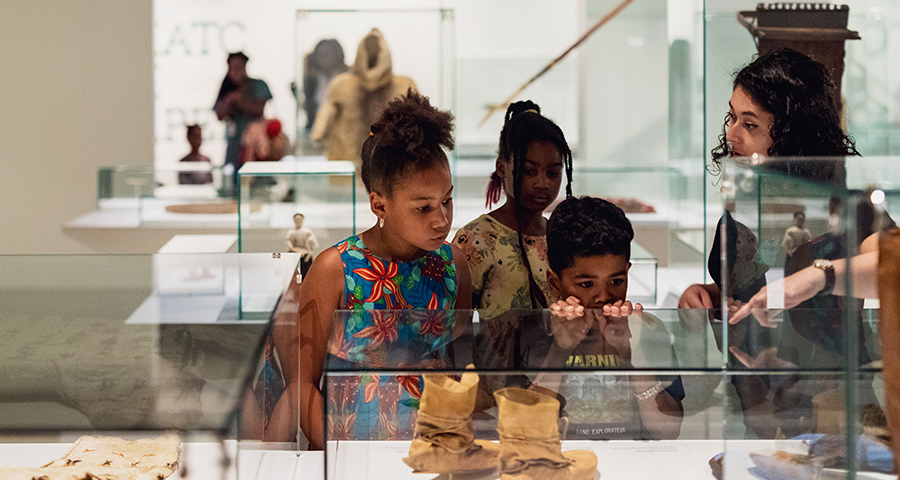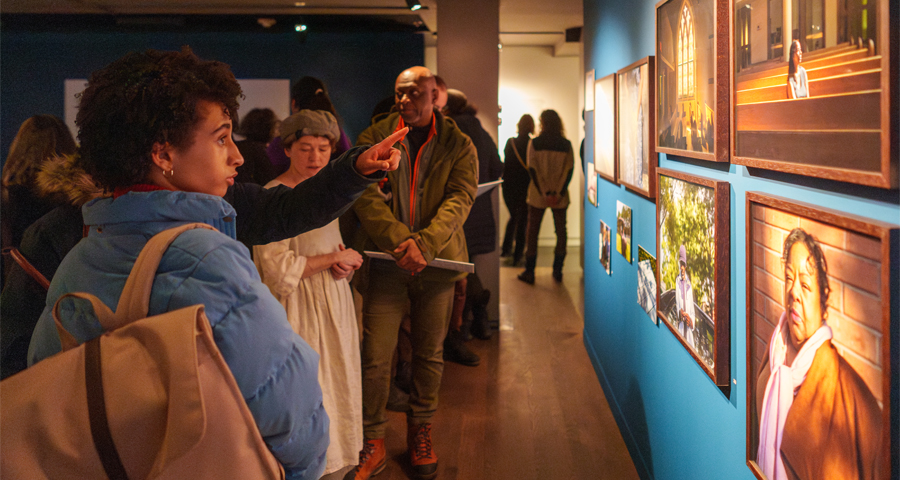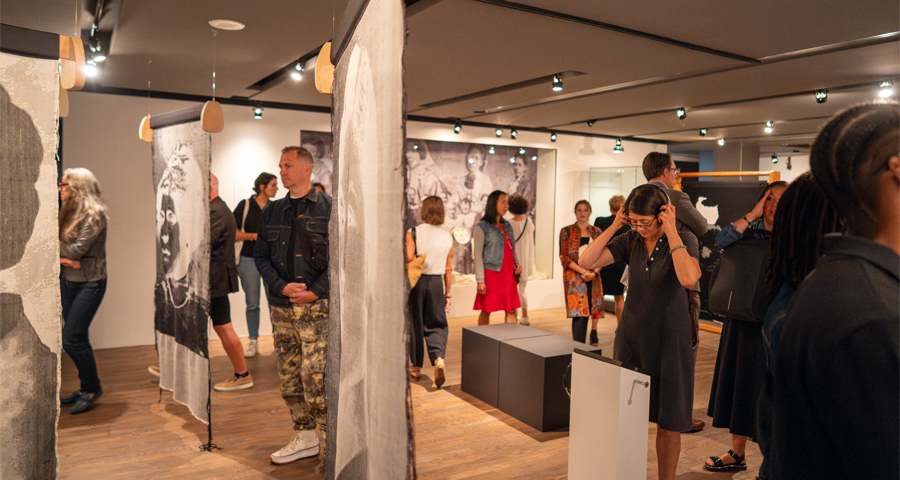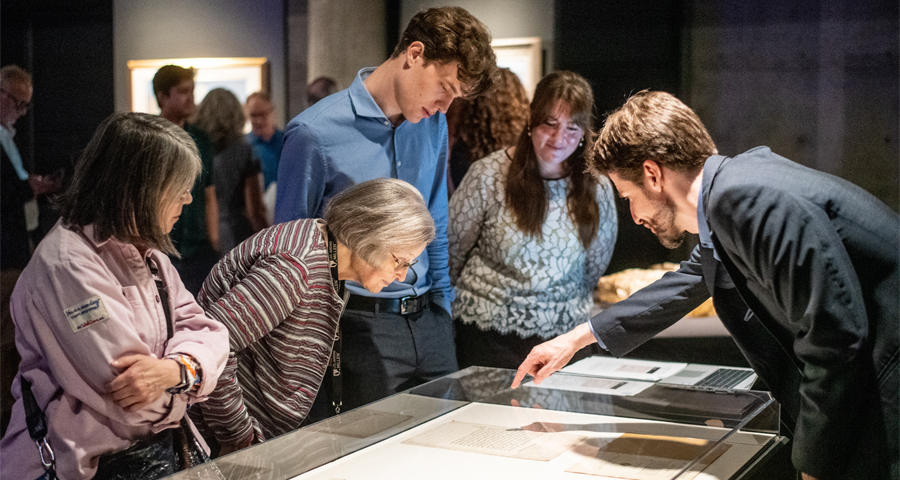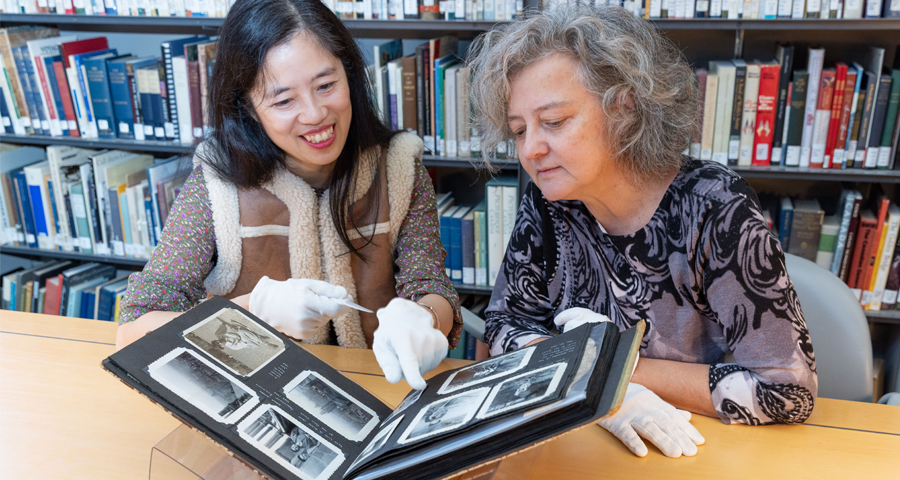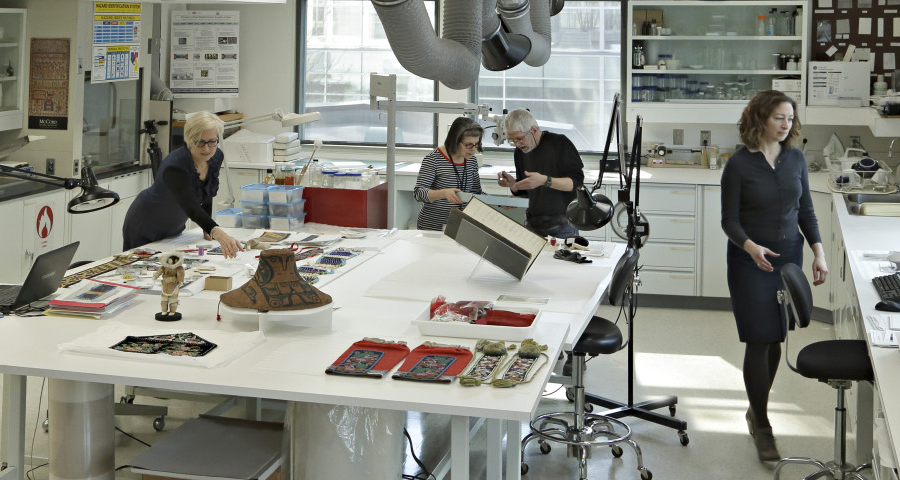Make a donation
Planned Giving: You Are at the Heart of Our Stories
A gift that leaves a lasting legacy
By choosing to make a planned gift to the McCord Stewart Museum Foundation, you help preserve and share our collective memory. The Museum is able to fulfill its role as the steward of an exceptional artistic, cultural and historical heritage thanks to your support.
With this meaningful gesture, you become part of a tradition of generosity that has shaped the McCord Stewart Museum for over a century. You ensure that the social stories of yesterday, today and tomorrow continue to live on and inspire present and future generations.
An accessible gesture that reflects your values
Regardless of the amount, a planned gift can be seamlessly integrated into your financial planning and estate arrangements, without compromising your current lifestyle or that of your loved ones. You can begin supporting the Museum today while establishing a long-term legacy that embodies your values and perpetuates your commitment. It’s a gift that benefits your family, yourself and the mission of the McCord Stewart Museum.
For all the details, we invite you to download the complete brochure.
Heritage Circle
We are deeply grateful to those whose exemplary support leaves a lasting legacy and helps ensure the Museum’s long-term sustainability. The Heritage Circle recognizes individuals who have made a planned gift commitment to the McCord Stewart Museum Foundation through a will or another form of planned giving.
Bequests (excluding donations to our collections)
We pay tribute to the individuals whose remarkable generosity has been expressed through a bequest to the McCord Stewart Museum Foundation since its founding. Their enduring commitment helps secure the Museum’s mission for future generations.
Please fill out this form* to learn more (coming soon).
* By submitting this form, you acknowledge having reviewed the McCord Stewart Museum’s privacy policy.
Stories of involvement
Mark Gallop
“My education and career were in finance, but my passion has always been history. As a McGill undergrad in the early 1980s, I channeled this enthusiasm into weekly sessions volunteering in the McCord Archives. And as I established my career, I became a regular visitor, member, and donor.
However, my relationship with the museum deepened a decade ago, thanks to a special artefact: a scrapbook chronicling the Westmount Thespians, an amateur theatrical group started in 1922. My grandfather and great-uncle were founding members, and I was enthralled in my childhood by the scrapbook’s evocative pages when it was brought out at annual picnic reunions for the ‘Thespians’ and their families.
I retrieved the scrapbook and related material after the death of the group’s last president from his widow with a promise to find a suitable home, with the McCord in mind. Happily, the fonds was evaluated and accepted by the Acquisitions Committee. Because I knew from my volunteering experience that there would be associated accessioning and preservation costs, I made a monetary donation to help defray these costs. The archivist responded with thanks and an intriguing idea: the scrapbook was an excellent candidate for digitization.
As an amateur historian with a day-job limiting my access to archives, I thought digitization made so much sense! From the museum’s perspective, the fonds gets preserved and protected, not only from catastrophic events but also from the risks of regular handling. As for researchers, they can consult the images via the museum website at any time, from anywhere in the world, without appointment or staff supervision, even during pandemic shut-downs!
I returned to the McCord the following year with an offer to fund the digitization of other fonds. Although my initial three-year commitment has long passed, it gives me great pleasure to extend the project each year to see the online resources in the McCord Stewart Archives and Documentation Centre proliferate.”
– Mark Gallop
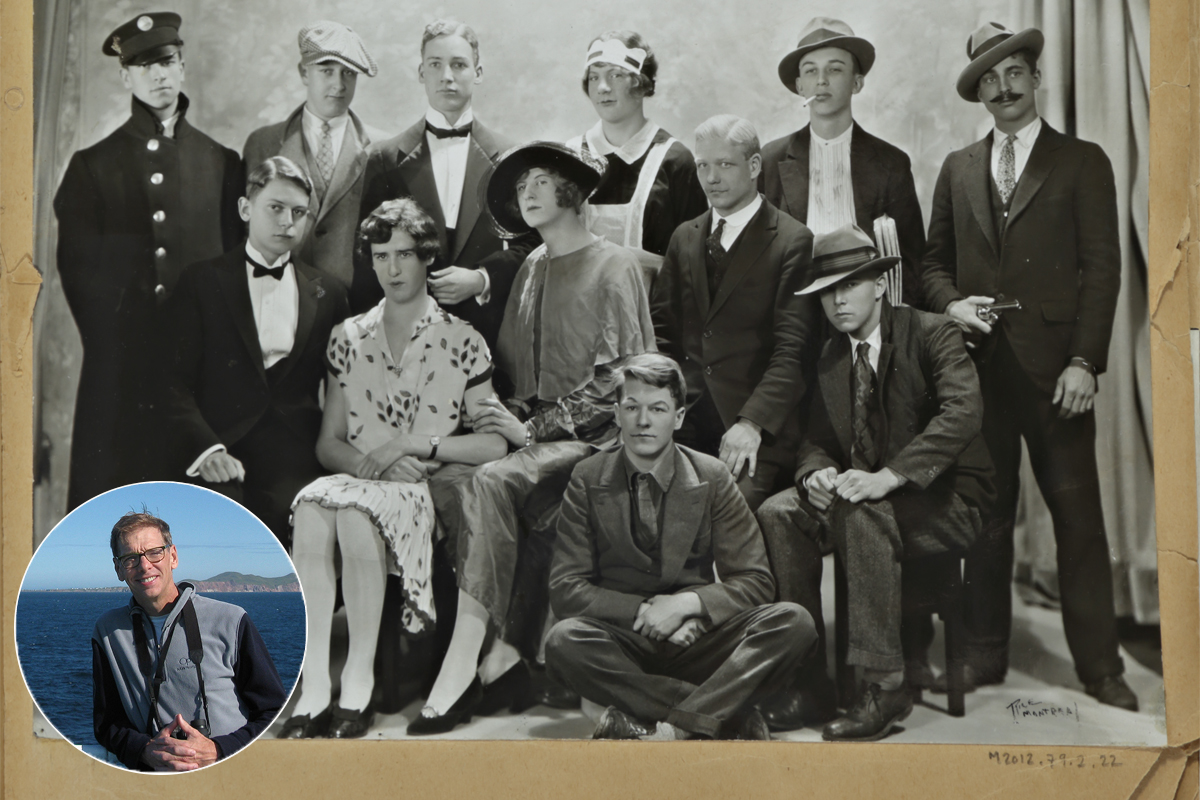
Marina Gusti
“Forty-five years ago, I arrived in Quebec with an architectural degree and some European professional experience. Montreal’s rich cultural life, and especially the McCord Museum, with its unique profile that reflects the history of the city, Quebec’s metropolis, as well as the vitality, creativity, and diversity of the individuals and communities that make it up, have contributed to my integration into society and have continued to be a loyal partner throughout my professional life as an architect and my personal development.
The McCord-Stewart Museum, open to the public of all ages, accessible and inclusive, encourages diversity, dialogue, and awareness of current social and environmental issues, ranging from history from Indigenous peoples to the present day and reflections on the future, to architecture, urban rehabilitation, and education.
We inherit culture, but it is a living organism that develops continually. We must help it flourish. It is a reflection of who we are. Hence the need to participate in the mission of philanthropy, a word that comes from the Greek and means friend of humanity.
To make a planned gift, you don’t need to be wealthy. If you can set aside money for a retirement fund, you can allocate a small amount to culture, health, or children. You have to think not only about the transfer of knowledge but also about the transfer of material power. And this happens little by little. You don’t need to be a millionaire. You fill your glass with drops of water; there’s no need to empty the entire carafe. Everyone has the means. With a little discipline, it’s very easy. You have to give to the family, of course, but you mustn’t neglect the society in which that family lives. We don’t exist in a vacuum. Our actions have an influence. We are accountable to society.
For many years, I have financially supported the McCord-Stewart Museum according to my means, and since I have no heirs, a legacy gift could be used for other purposes. Sharing is a principle I inherited from my parents. It seems naturally to me to want to share this money with the Museum so that it can create new educational programs and encourage new generations of visitors. And that is the greatest gift one can give oneself as a donor.
When we do good to others, we nourish ourselves.”
– Jean Gastaldi
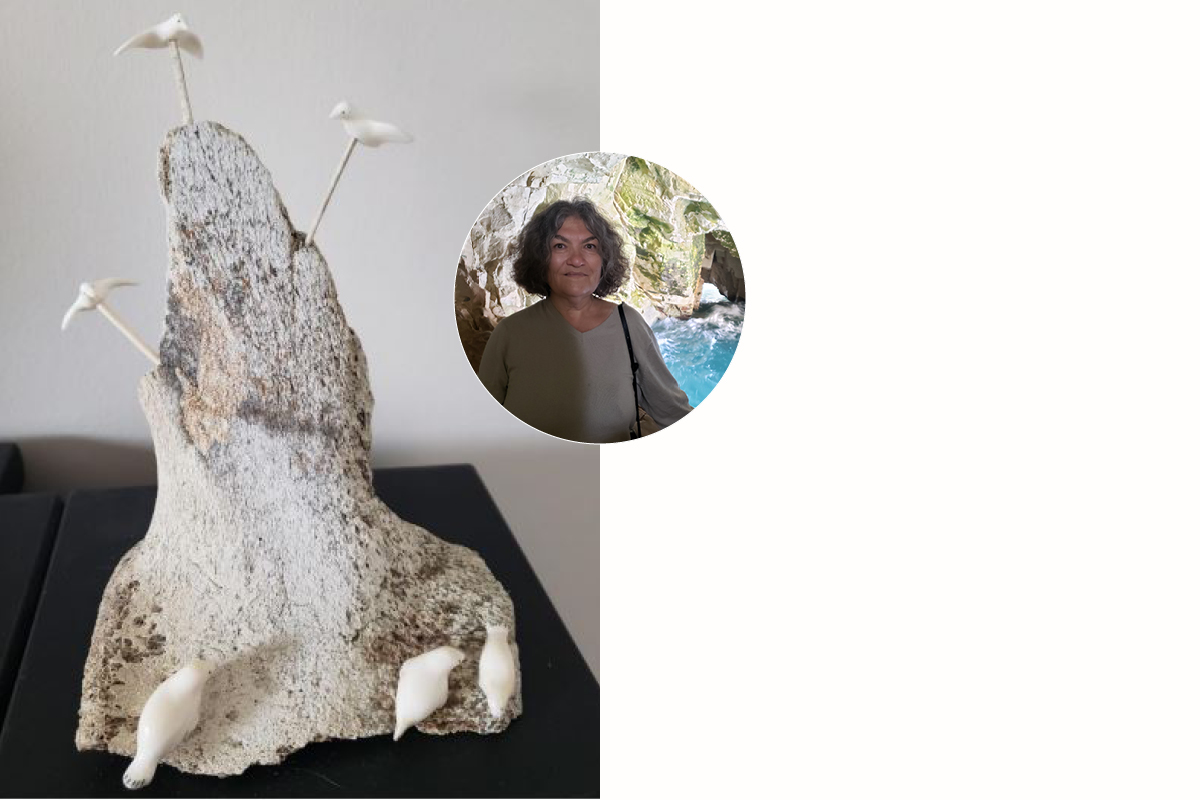
Read about inspiring individuals who have chosen to leave a meaningful legacy that reflects their values
Members of the Heritage Circle
Coming soon.
Bequests
Micheline Boyer
Anne V. Byers
Althea Cleveland McCoy Douglas
Joan Christina Edwards
Charles Edward Elliott
Marietta L. Freeland
Bryon Richard MacGregor
Joan McKim
Beatrice Molson
Edith Paton
Marie Pineau
Robin Brooks Pitcher
Sarah Sainte-Marie
Stratton D. Stevens
Joan Watt
V. M. Michael Whitehead, in memory of Mary Sheilagh Ryan Whitehead
Edna Wootan
Eva Zietkiewicz
The McCord Stewart Museum Foundation
The McCord Stewart Museum Foundation is a charitable organization dedicated to the success of the McCord Stewart Museum and to the preservation and dissemination of its collections. Through the generous support of individuals, private foundations and corporations, the Foundation provides about one-third of the Museum’s annual budget. Your support is essential!
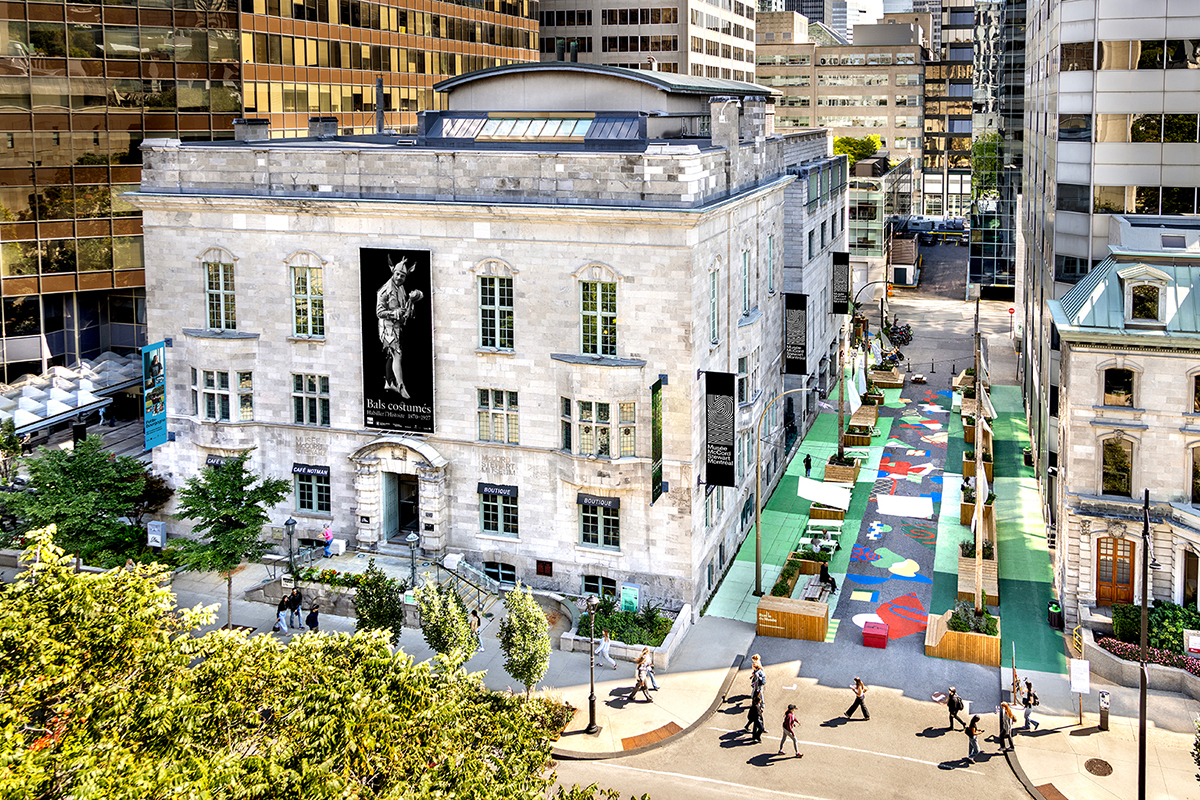
For more information
Pierre Poirier
Senior Officer, Annual Campaign and Planned Giving
fondation-mccord@mccord-stewart.ca
514-861-6701, ext. 1237
For more information
Pierre Poirier
Senior Officer, Annual Campaign and Planned Giving
fondation@mccord-stewart.ca
514-861-6701, ext. 1237
McCord Stewart Museum Foundation
690 Sherbrooke Street West
Montreal (Quebec) H3A 1E9

